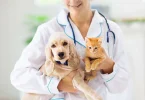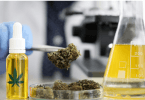The landscape of medical diagnostics is experiencing a revolutionary transformation, with innovative testing technologies reshaping how we detect and prevent diseases before they become life-threatening. These advances are moving us from reactive healthcare—treating diseases after symptoms appear—to proactive healthcare that identifies potential health threats while they’re still manageable.
Contents
The Power of Liquid Biopsies
Traditional cancer screening methods often require invasive procedures or can only detect tumors once they’ve grown large enough to be visible on imaging. Today’s liquid biopsy technologies are changing this paradigm entirely. These sophisticated blood tests can detect circulating tumor DNA (ctDNA) and other cancer biomarkers in the bloodstream, identifying potential malignancies at their earliest stages.
The science behind liquid biopsies is remarkable. As cancer cells grow and die, they release fragments of their DNA into the bloodstream. Advanced sequencing technologies can now identify these molecular fingerprints with extraordinary precision, even when present in minute quantities. This breakthrough allows doctors to screen for multiple types of cancer simultaneously with a single blood draw.
Multi-Cancer Early Detection: A Game-Changer
Perhaps the most exciting development in this field is the emergence of multi-cancer early detection (MCED) tests. Unlike traditional screening methods that focus on one type of cancer at a time, MCED tests can screen for dozens of different cancer types in a single test. The Galleri blood test represents one of the most promising examples of this technology, designed to detect signals from more than 50 types of cancer through a simple blood sample.
These comprehensive screening tools are particularly valuable for detecting cancers that currently lack effective screening methods. While we have established protocols for screening common cancers like breast, cervical, and colorectal cancer, many other cancer types often go undetected until symptoms appear. MCED tests help fill these critical gaps in cancer screening.
Beyond Cancer: Transforming Disease Detection Across Medicine
The revolution in early disease detection extends far beyond oncology. Cardiovascular medicine is benefiting from advanced biomarker testing that can predict heart attacks and strokes years before they occur. Neurological conditions like Alzheimer’s disease are now detectable through blood tests that identify tau proteins and amyloid plaques, potentially decades before cognitive symptoms appear.
In infectious disease medicine, rapid molecular diagnostics can identify pathogens within hours rather than days, enabling faster treatment decisions and better patient outcomes. These tests proved invaluable during the COVID-19 pandemic and continue to enhance our ability to respond to emerging health threats.
Artificial Intelligence: The Diagnostic Accelerator
Artificial intelligence is amplifying the power of these cutting-edge tests by identifying patterns that might escape human detection. Machine learning algorithms can analyze vast datasets of biomarkers, imaging results, and patient histories to predict disease risk with unprecedented accuracy. AI-powered diagnostic tools are particularly effective at detecting subtle changes in medical images, often identifying abnormalities before they’re visible to the trained human eye.
Overcoming Implementation Challenges
Despite these remarkable advances, several challenges remain in widespread adoption of cutting-edge diagnostic tests. Cost considerations, insurance coverage, and healthcare system integration all pose significant hurdles. Additionally, ensuring that these advanced technologies are accessible to diverse populations and don’t exacerbate existing healthcare disparities requires careful planning and policy consideration.
There’s also the crucial matter of managing patient anxiety and false positives. As tests become more sensitive, they may detect abnormalities that never would have caused harm, leading to unnecessary procedures and psychological distress.
Looking Forward: A Preventive Healthcare Future
The transformation of early disease detection represents more than just technological advancement—it signals a fundamental shift toward personalized, preventive medicine. As these tests become more accessible and affordable, they promise to catch diseases at their most treatable stages, ultimately saving lives and reducing healthcare costs.
The future of medicine is increasingly proactive, and these cutting-edge diagnostic tools are leading the charge toward a world where diseases are prevented rather than simply treated.







